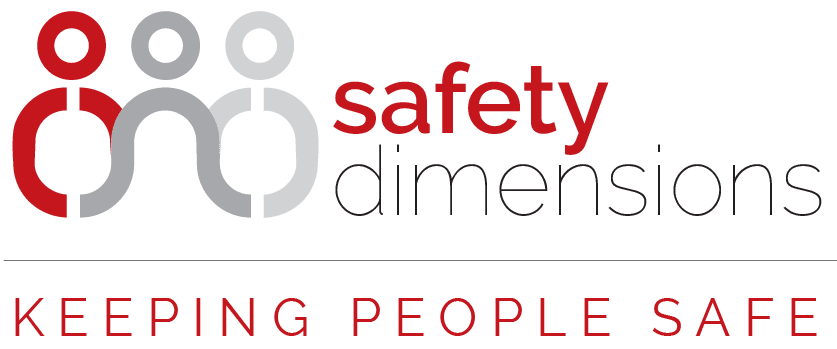
For many, 2020 has been a rough start to the year.
With the horrific bushfires in Australia and fear of the spread of Coronavirus globally and locally, many workplaces are dealing with staff directly or indirectly impacted by trauma emanating from these events.
Some lost loved ones, their homes and/or animals in the fires or are close to those who have. They may have fought the fires with the CFA on behalf of grateful communities, helped their neighbours or friends defend their homes or evacuate from harm’s way under intense circumstances. Family or friends may be isolated or quarantined in the Coronavirus response or are waiting on tenterhooks for news on affected relatives or friends. Both of these situations are ongoing.
Emotionally and physically so many Aussies have been traumatised, so what can you, a colleague or supervisor do to help?
Everyone deals with trauma differently. There is no right way’. Some will want to talk about it whilst others won’t. Some find it difficult to focus or will withdraw, while others are all talk. Some are emotional whilst others behave just like they did before the events. What is common to all is what they’ll need from you as their workmate or Manager.
Listen
Truly listen. This is not interrupting them with your own view on what has happened, cutting them short or telling them how they should’ be feeling, for example aren’t you angry at those darn pollies? It is not about making them feel their reaction is wrong or making’ them talk about it if they don’t want to.
Listening is being present in the moment with them. Listening is letting them share what they wish to (or not). Listening is letting them express as little or as much as they wish. Listening is not judging. Listening is accepting a perspective and allowing them to share. Whatever their reaction, remind yourself they are having a very normal response to a very abnormal and traumatic event, and let them express what and how they feel in a way appropriate to them.
Acknowledge
“I used to think the worst thing in life was to end up all alone. It’s not.
The worst thing in life is to end up with people that make you feel alone.
Robin Williams
Acknowledge how they feel. When you acknowledge how someone feels they feel supported and not alone. Statements such as I can’t imagine how frightened you would have been are appropriate. Everyone will feel differently as everyone’s experience is different – sad, angry, frightened, scared or frustrated – empathise and acknowledge their feelings and accept their reaction as just that – their unique reaction.
The worst thing you can do is tell them how they ‘should be feeling’ or what you think they should do to fix, or get relief from the situation. They won’t feel listened to or heard. When you are present, listen deeply and acknowledge how they feel – they will feel heard and supported and most importantly, not alone.
Support
Know the difference between listening and acknowledging vs counselling. As a Manager or work colleague it is not our role to provide counselling at work. Rather, our role is to support people the best way we can, and when it comes to the psychological side of dealing with trauma, this support includes encouraging them to seek professional support.
Never attempt to provide counselling to others unless you are qualified to do so. Why? Trauma is a tricky topic to integrate and process, and you may do more harm than good if you venture into this territory (even with the best intent) without the skills and knowledge to truly help. Also, the workplace is often a refuge for people experiencing trauma and to blur boundaries by attempting to help them process’ emotion at work, can have countless side effects.
Your role is to listen, acknowledge and support. This support may include referrals to a professional and often practical help such as flexible work hours or working from home, time off, food, clothing or housing or perhaps reduced workloads. These supports are needed, wanted and will show you care without venturing into territory where you are not qualified to offer advice.
Listen – acknowledge – support. Three simple steps that will make a huge difference.
Where you or your staff can get support
Lifeline
13 11 14
Lifeline provides free, 24-hour Telephone Crisis Support service in Australia. Volunteer Crisis Supporters provide suicide prevention services, mental health support and emotional assistance, not only via telephone but face-to-face and online.
Beyond Blue
1300 22 4636
Beyond Blue is an Australian independent non-profit organisation working to address issues associated with depression, suicide, anxiety disorders and other related mental disorders
Embrace Multicultural Mental Health
(02) 6285 3100
A national platform for multicultural communities and Australian mental health services to access resources, services and information in a culturally accessible format.
Headspace
1800 650 890
Free online and telephone service that supports young people aged between 12 and 25 and their families going through a tough time.
Want to be a better leader?
In our programs designed for emerging leaders, you’ll learn how to provide leadership and guidance to others in the workplace and to manage effective, motivated, high performing teams in all types of organisations and industries.
Our program are customised to your organisations needs and timeline with time between the sessions to enable staff to trial their new skills within the workplace supported by an expert management facilitator.
To find out how we can customise our programs for your needs contact us on 03 9510 0477, [email protected] or click here.
From our blog
New programs: Diversity & Inclusion, Time Management and Leading Through Change.
Our newest programs Diversity & Inclusion, Time Management and Leading Through Change can be delivered either face-to-face at your workplace or via our live instructor-led interactive online platform, LDN-i. Diversity & Inclusion Diversity and Inclusion in the...
5 Ways to Improve Your Chances of Winning Tenders
What does it take to win large pieces of work? At Safety & Leadership Dimensions, we work closely with companies in their tender process and often get asked to partner on large tenders as part of their winning tender team. Here's what we see makes a successful...
What Do Van Halen & Brown M&M’s Have To Do With Safety?
Van Halen's Brown M&Ms - Their Key To Rock and Roll Safety There's a long tradition of musicians and actors adding absurd demands to their performance contracts just because they could. Van Halen, the American hair rock band of the '80s was infamous for this...
Work-related fatigue: a guide for employers from WorkSafe Victoria
WorkSafe Victoria has produced a guide on how to prevent workplace injuries to employees. According to the guide, "Fatigue is an acute and/or ongoing state of exhaustion that leads to physical, mental or emotional exhaustion and prevents people from functioning safely...
5 tips for working successfully with subcontractors
Organisations are increasingly including subcontractors in their internal training, so everyone is aligned under a single Health & Safety framework. Not only is this beneficial for alignment of safety behaviours, but from a WHS compliance perspective, you have a...
Undertaking a COVID-19 Risk Assessment for your workplace
Have you undertaken a current risk assessment to identify the risks associated with exposure to COVID-19 in your workplace? Safe Work Australia has published a downloadable checklist you can follow with the key considerations for identifying risks and control...






